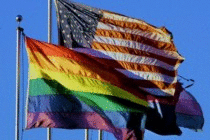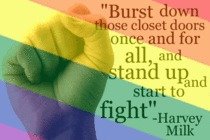 Barack Obama took power as the first black U.S. president on Tuesday and quickly turned the page on the Bush years, urging Americans to rally to end the worst economic crisis in generations and repair the U.S. image abroad.
Barack Obama took power as the first black U.S. president on Tuesday and quickly turned the page on the Bush years, urging Americans to rally to end the worst economic crisis in generations and repair the U.S. image abroad."Starting today, we must pick ourselves up, dust ourselves off, and begin again the work of remaking America," Obama said, addressing an exuberant sea of people in an inaugural speech that was optimistic but realistic about the challenges ahead.
He pledged bold and swift action to bring new life to the U.S. economy and declared to millions watching abroad: "We are ready to lead once more."
Underscoring the tough road ahead, Wall Street ushered in the new presidency with a record Inauguration Day slide amid signs the global banking crisis was far from over.
Hundreds of thousands of people erupted in cheers on Washington's National Mall grounds as they watched Obama stand with one hand raised, one hand on a Bible used to swear in Abraham Lincoln in 1861, and repeat the brief oath to become the 44th U.S. president.
Beaming, the new president kissed his wife, Michelle, and his school-age daughters, Malia and Sasha. Then he turned to the crowds stretching into the distance on a cold, wintry day.
"Obama, Obama," the crowd cheered.
Obama, a Democrat, succeeded Republican George W. Bush, who served two terms and left office having plumbed record lows in approval ratings and leaving a legacy of two wars and an economy in recession.
Obama offered a sharp break from Bush, emphasizing the need for sacrifice and pledging to restore U.S. global standing, responsibly end the war in Iraq, and focus less on the size of government and more on whether it works.
During a triumphant ride down Pennsylvania Avenue to the White House in a heavily armored limousine, Obama and his wife thrilled wildly cheering crowds by getting out of the limo and walking a part of the way on foot.
Security personnel -- part of a contingent that numbered in the thousands -- kept close watch.
Obama has to hit the ground running given the state of the economy and the U.S. Senate confirmed several key Obama appointments, including Steven Chu as energy secretary and Tom Vilsack for agriculture.
The Senate Finance Committee is expected to vote on Timothy Geithner as treasury secretary on Thursday. Hillary Clinton, Obama's fierce rival for the Democratic presidential nomination and his choice as secretary of state, is expected to be approved by the full Senate on Wednesday.
The inauguration of Obama, 47, the son of a black Kenyan father and a white mother from Kansas, was steeped in symbolism for African-Americans, who for generations suffered slavery and then racial segregation that made them second-class citizens.
The jubilant mood was jolted by the collapse of Massachusetts Democratic Senator Edward Kennedy at an inaugural lunch honoring Obama on Capitol Hill. Kennedy, 76, who underwent surgery in June for a brain tumor, appeared to suffer convulsions, a congressional aide said.
Wheeled out on a stretcher, the brother of the late President John F. Kennedy was driven away by an ambulance to a hospital, where he was described as awake and answering questions.
Polls show widespread U.S. public support for Obama and optimism about the coming four years of his presidency. But Obama sought to temper soaring expectations with reality.
The new president cited the worst U.S. economic conditions in 70 years and the Iraq and Afghanistan wars as having put the country in crisis. "What is required of us now is a new era of responsibility," he said.
He said the "badly weakened" U.S. economy will be a top priority as he works with the Democratic-controlled U.S. Congress on an estimated $825 billion economic stimulus package.
The economy had fallen victim to "greed and irresponsibility" and an avoidance of hard choices, Obama said. The economic crisis showed that markets can spin out of control "without a watchful eye," he added, signaling he would put a priority on revamping financial regulations.
Obama will meet his senior economic advisers on Wednesday to discuss the stimulus plan.
Turning to foreign policy and the standing of the United States abroad, Obama vowed the United States would leave Iraq "responsibly" and help Afghanistan win a hard-earned peace.
He did not provide a specific timetable for a U.S. withdrawal from Iraq, but under a U.S.-Iraqi agreement, U.S. troops would depart by the end of 2011. Obama has pledged to increase U.S. troop strength in Afghanistan to turn back a resurgent Taliban.
He was due to meet military commanders on Wednesday to discuss the possibility of accelerating the U.S. troop withdrawal from Iraq, and the need for more forces in Afghanistan.
In a clear reference to harsh U.S. interrogation practices of terrorism suspects that have been widely condemned abroad, Obama vowed a change, saying he rejected as false "the choice between our safety and our ideals."
There has been broad world disapproval of many Bush policies in the U.S. war on terrorism that Bush declared after the September 11 attacks in 2001 that deeply shaped his eight years in office.
After years of tense relations with Muslims, Obama offered conciliatory words to the Islamic community, saying he would seek a "new way forward" based on mutual interest and mutual respect.
But on the issue of terrorism, he said: "You cannot outlast us, and we will defeat you."
Bush, his public approval ratings in the basement as the cheers for Obama resounded around the city, left Washington for his home state of Texas after the inauguration.
The recession has saddled the country with a $1 trillion deficit and 11 million people unemployed and has become the top concern of the U.S. public. Economic woes helped Obama beat Republican John McCain in the November presidential election.
"I don't care what color he is," said Garrell Winstead, a 67-year-old real estate investor from Cincinnati, Ohio who was in Tuesday's crowd. "If the economy doesn't improve and if he doesn't create enough jobs, patience will evaporate."
Obama gave no specifics about his proposed stimulus package. But he said the plan that would pay for new roads, bridges, electrical grids and other projects would set the foundation for future growth.
He also repeated campaign promises to "restore science to its rightful place" -- the Bush administration was criticized for packing scientific advisory panels with industry representatives and ideologues. He also promised to put technology to work transforming healthcare, and action toward an alternative energy policy.
Source: Reuters.com










No comments:
Post a Comment